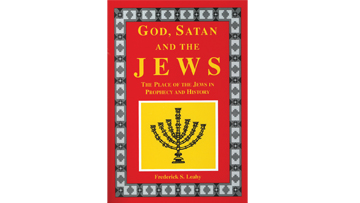You have free articles remaining this month.
Subscribe to the RP Witness for full access to new articles and the complete archives.
Doctrine
THE FREE OFFER: BIBLICAL & REFORMED, by David Silversides, Marpet Press, 2005. Reviewed by Pastor Philip H. Pockras.
David Silversides, the minister of Loughbrickland RPC in Northern Ireland, has written a splendid presentation on the “free offer of the gospel,” showing that the entire concept is both truly biblical and Reformed.
Some in the Reformed community deny both. Mr. Silversides has debated such men in Northern Ireland and in Scotland. Recordings of the debates and Mr. Silversides’ lectures on the topic are available at www.reformedvoice.org.
Mr. Silversides is firm but respectful toward those who hold to the opposing view. He makes sure that he does not engage in building straw men. As an example, he distinguishes the position of some in the Reformed community from “hyper-Calvinists.” He then goes to show several of the presuppositions that these Reformed men hold. He also says that, while their desire to be consistent in glorifying God and His sovereignty is a beautiful and godly motive, it is better to be consistent to Scripture than to attempt to hold what one believes is one’s own logical consistency.
Silversides demonstrates the consequences of rejecting the free offer of the gospel, one being that there is no warrant for any sinner to believe on the gospel otherwise. Further, he displays the exegetical problems in rejecting the free offer view.
A helpful collection of quotations from John Calvin, many members of the Westminster Assembly, and other Reformed writers demonstrates that the doctrines of the free offer of the gospel and “common grace” are not novelties of Abraham Kuyper or others. Rather, these are mainstream in the Reformed church, British and Continental.
I recommend this book highly. It is directly in line with the Westminster Standards, our current historical testimonies, and the majority of the Reformed world.
GOD, SATAN, AND THE JEWS, by Frederick S. Leahy, Cameron Press, 2005. Reviewed by Pastor Philip H. Pockras.
This booklet of 48 pages is an excellent introduction to a scriptural view of the place of the Jews in prophecy and history, written by the late principal of the Reformed Theological College in Belfast and minister in the RPC of Ireland.
To those with Jewish ancestry, like me, this is a subject full of interest. One will not find here extensive explanation of Jewish customs, beliefs, or culture. What one does find is a quick overview of God’s dealing with the Jews in Scripture, the continuing applicability of Scripture to their situation, and a plea for Christians to show the highest love to Jews by treating them civilly and giving them the gospel.
Prof. Leahy shows the terrible nature of much of what passes for friendship to the Jews today, even in “evangelical” circles. Many today are declaring that the Jews have no need of the gospel, since they continue to be God’s people. Much of this thought is a development of dispensationalism. This is not to say, of course, that dispensationalism leads all its adherents to hold to a continuing notion of two peoples of God (Israel and the Church), but it is a logical development. In contrast, Prof. Leahy shows the continuing need of all peoples, including the Jews, to kiss the Son, lest He be angry, and they perish in the way (Ps. 2).
One aspect of prophecy concerning the Jews that continues to occasion discussion has to do with a proper understanding of Romans 11. Some, such as Dr. O. Palmer Robertson, believe that the passage indicates no particular special future for the Jews. Some, such as Prof. John Murray, believe that Romans 11 prophesies a general revival of the Jews and their incorporation into the Church. Prof. Leahy gives a fine summary of both positions and gives a somewhat mediating understanding of his own.
Dr. Hugh Blair, retired Old Testament professor at Reformed Theological College, has a fine Foreword that adds much to the value of this work.
Ethics
FIGHTING FOR DEAR LIFE, by David Gibbs, Bethany House, 2006. Reviewed by Ricky Kortyna.
Five years after Roe v. Wade, a Harvard ad hoc committee redefined death, creating the category known as “brain death.” In the space of a half decade, the definition of the beginning and end of life were changed.
Roe v. Wade was incredibly polarizing. Nearly every elected official in the United States has to take a stand on this Supreme Court decision, and most contort the terms involved to such a degree that it is not clear what they believe.
End-of-life issues, however, are barely noticed until a case like that of Terri Schiavo hits the media. Yet for Christians, the issue is the same as that of abortion: What is human life? When does life begin and when does it end?
At least three books have been written about Terri Schiavo, including one by her husband and another by her parents. This volume, Fighting for Dear Life, was written by the lawyer whose mission it was to keep Terri alive.
All three books have a common denominator— the writing is horrible. It is not until 200 pages into the book that Gibbs directly approaches the main topic, the sanctity of life.
The question that needs to be addressed, but which is only given a glancing blow in this book, concerns what Christians believe should be done at the end of life. This question has not been adopted by Christians as have beginning- of-life issues.
There are, thankfully, a number of well-written Christian ethics books that deal with end-of-life issues. We would do well to read them.
